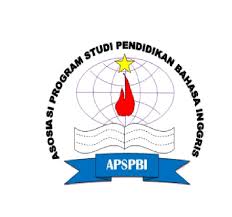Students’ Speaking Anxiety: Ready or Not
DOI:
https://doi.org/10.22515/ele-reviews.v1i1.3592Keywords:
anxiety, speaking skillAbstract
Language is the main common field for communication. For that reason, communication skills must take part in learning a language. Speaking is being a part of English lessons in schools today. However, making students speak English is not always easy, and there can be several different reasons it happens. One possible reason is speaking anxiety and its influence on second language acquisition. The study aims to analyze the students’ speaking anxiety when they are in the speaking session. The study is based on literature and contains an interview with the teacher. It is stated that speaking anxiety inhibits students from speaking, which hurts their skills. The research shows that speaking is not the main issue at schools. A reason is that speaking anxiety is not seen as a problem concerning language teaching since it can be considered a social difficulty. In order to enrich speaking in a classroom, it is essential to strive for a joyful atmosphere where every student can feel relaxed and motivated to communicate orally.
Downloads
References
Abood, M. H., & Abu-Melhim, A-R. H. (2015). Examining the effectiveness of group counseling in reducing anxiety for Jordanian EFL learners. Journal of Language Teaching and Research, 6(4), 749-757.
Al-Khasawneh, F. M. (2018). Investigating foreign language learning anxiety: a case of Saudi undergraduate EFL learners. Journal of Language and Linguistic Studies, 12(1), 137-148.
Al-Wossabi, S. (2016). Speaking in the target language: Issues and considerations. Journal of Language Teaching and Research, 7(5), 886-893.
Bashir, M., Azeem, M., & Dogar, A. H. (2011). Factor affecting students’ English speaking skills. British Journal of Arts and Social Sciences, 2(1), 34-50.
Bekti, N. S. (2016). A descriptive study on teaching speaking at the eleventh grade of SMA Negeri 1 Purwantoro in 2015/2016 academic year (thesis). Universitas Muhammadiyah Ponorogo.
Doğan, C. (2016). Self-efficacy and anxiety within an EFL context. Journal of Language and Linguistic Studies, 12(2), 54-65.
Ghoonsoly, B., & Amiri, M. (2015). The relationship between English learning anxiety and the students’ achievement on examinations. Journal of Language Teaching and Research, 6(4), 855-865.
Horwitz, E. K., Horwitz, M. B., & Cope, J. (1986). Foreign language classroom anxiety. Modern Language Journal, 70(2), 125-132.
Juhana. (2012). Psychological factors that hinder students from speaking in English class (a case study in a senior high school in South Tangerang, Banten, Indonesia). Journal of Education and Practice, 3(12), 100-110.
Nazara, S. (2012). Students’ perception of EFL speaking skill development. Journal of English Teaching, 1(1), 28-43.
Oh, S. Y. (2007). Research on the development of evaluation tools for primary school students’ English speaking skills. Journal of Pan-Pacific Association of Applied Linguistics, 11(1), 35–47.
Öztürk, G., & Gürbüz, N., (2014). Speaking anxiety among Turkish EFL learners: The case at a state university. Journal of Language and Linguistic Studies, 10(1), 1-17.
Sener, S. (2015). Foreign language learning anxiety and achievement: A case study of the students studying at Çanakkale Onsekiz Mart University. Electronic Turkish Studies, 10(3), 875-890.
Tanveer, M. (2008). Investigations of the factors that cause language anxiety for ESL/EFL learners in learning speaking skills and the influence it casts on communication in the target language (thesis). The University of Glasgow.
Torky, S. A. E. F. (2006). The effectiveness of a task-based instruction program in developing the English language speaking skills of secondary stage students (dissertation). Ain Shams University.
Downloads
Published
How to Cite
Issue
Section
Citation Check
License
Copyright (c) 2021 Risqi Ekanti Ayuningtyas Palupi

This work is licensed under a Creative Commons Attribution-NonCommercial 4.0 International License.
Authors retain copyright and grant the journal right of first publication with the work simultaneously licensed under a Creative Commons Attribution License that allows others to share the work with an acknowledgement of the work's authorship and initial publication in this journal.
This ejournal system and its contents are licensed under
a Creative Commons Attribution-NonCommercial 4.0 International License








